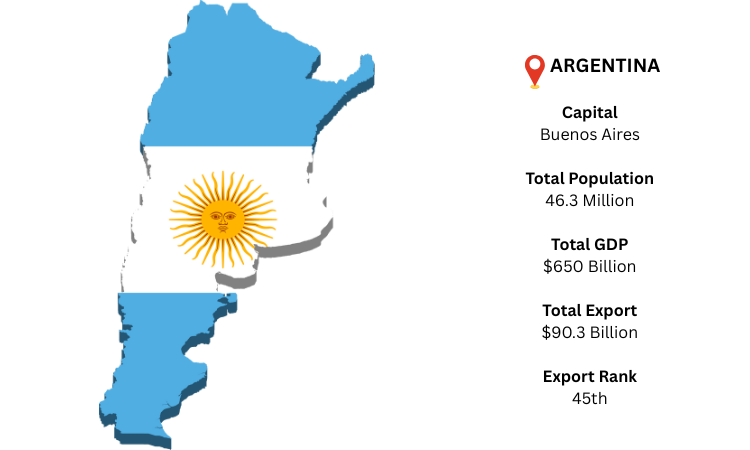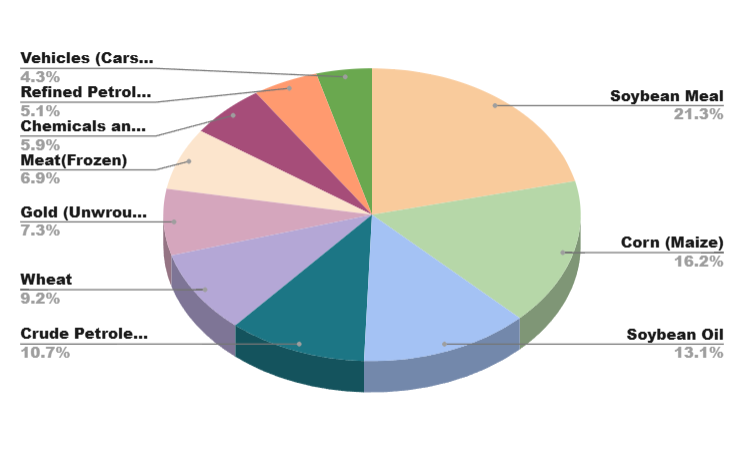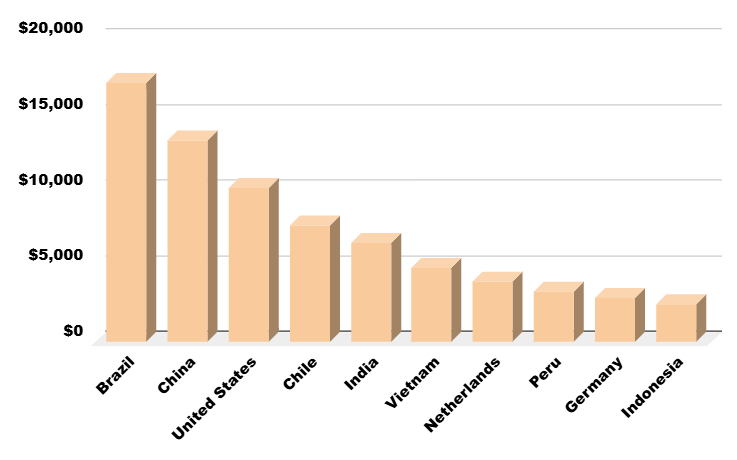Argentina is a sizable country in South America that shares borders with Brazil, Uruguay, Chile, Bolivia, and Paraguay. To the east of Argentina lies the South Atlantic Ocean. Its capital and greatest city, Buenos Aires, serves as the main political and economic center of the country. In 2024, Argentina's GDP is expected to exceed USD 650 billion. Argentina is the 45th largest exporter in the world, based on the most recent global trade data. Right now, the largest importer of Argentine products is Brazil. According to Argentina export data, Argentina's overall export value in 2024 will be USD 90.3 billion, with soybean meal being the most exported goods.
Argentina is renowned for its extensive industrial capability, mineral resources, and agricultural production. The country retains substantial export ties, especially in the agricultural and energy industries, despite economic and inflationary concerns. Argentina continues to grow its trading networks throughout Europe, Asia, and the Americas and plays a crucial role in ensuring the security of the world's food supply.



